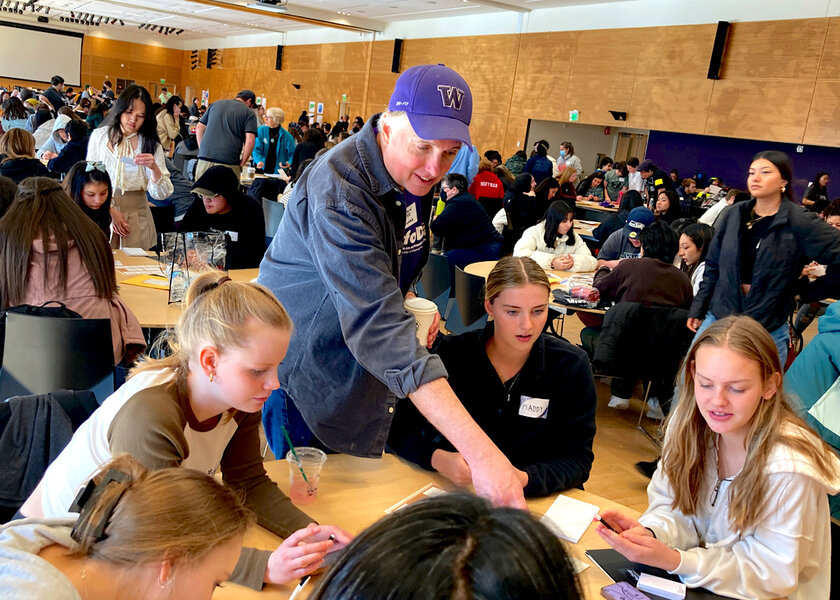Classroom lessons in discerning truth
Loading...
The problem of digital disinformation has set governments scrambling to protect two tenets of democracy that seem increasingly at odds with each other: fair elections and freedom of speech. Yet behind the debates over how or whether to regulate the modern public square, a simpler solution has quietly advanced.
This week California becomes the fourth U.S. state to require its public schools to teach digital literacy from kindergarten through high school. It follows New Jersey, Delaware, and Texas, which have all taken similar steps. The purpose of these measures, as the California law states, is to build “critical thinking” and “strengthen digital citizenship.”
That offers a cue at a time of heightened concern for the integrity of upcoming elections, from Taiwan to the United States. The laws are an acknowledgment that the solution to digital dishonesty ultimately resides in individual reason and self-government – qualities that are inherent in everyone.
Good digital citizenship, says Alice Huguet, an education researcher at the Rand Corp., means “engaging in civil dialogue.” It includes sharing information responsibly, she recently told The Guardian. The education reforms in California and other states may end up showing that when people are able to discern digital dishonesty, they may also be less likely to distribute it.
The ever-more sophisticated forms of digital disinformation have set governments scrambling to protect two tenets of democracy that seem increasingly at odds with each other: fair elections and freedom of speech. Yet behind the debates over how or whether to regulate the modern public square, a simpler solution has quietly advanced.
This week California becomes the fourth U.S. state to require its public schools to teach digital literacy from kindergarten through high school. It follows New Jersey, Delaware, and Texas, which have all taken similar steps. More than a dozen other states are moving in the same direction.
The purpose of these measures, as the California law states, is to build “critical thinking” and “strengthen digital citizenship.” That offers a cue at a time of heightened concern for the integrity of upcoming elections, from Taiwan to the United States. The laws are an acknowledgment that the solution to digital dishonesty ultimately resides in individual reason and self-government – qualities that are inherent in everyone.
Digital literacy “refers to the knowledge, skills and attitudes that allow children to be both safe and empowered in an increasingly digital world,” according to UNICEF. Rather than treating it as a unique subject, the California law requires educators to fold it into everything they teach, from math to literature.
That approach draws on experience in more than 50 countries as diverse as Finland and Uganda. It taps the distinct ways that different disciplines teach students how to gather and analyze information. In the U.S., the movement toward digital literacy in education is one of the few policy fields that garner broad consensus across red and blue states.
One reason is the emphasis on safety. Digital literacy teaches children from an early age to start recognizing potentially harmful information and question the veracity of sources. A Stanford study this past year found that after just six 50-minute lessons, high school students were twice as likely to spot suspicious websites.
“This law isn’t about teaching kids that any specific idea is true or false, rather it’s about helping them learn how to research, evaluate, and understand the information” they encounter online, said New Jersey state Sen. Michael Testa about the law his state adopted last year.
What’s good for the health and safety of individuals, however, has a civic equivalent. Good digital citizenship, says Alice Huguet, an education researcher at the Rand Corp., means “engaging in civil dialogue.” It includes respecting digital privacy and sharing information responsibly, she recently told The Guardian. The education reforms in California and other states may end up showing that when people are able to discern digital dishonesty, they may also be less likely to distribute it.







